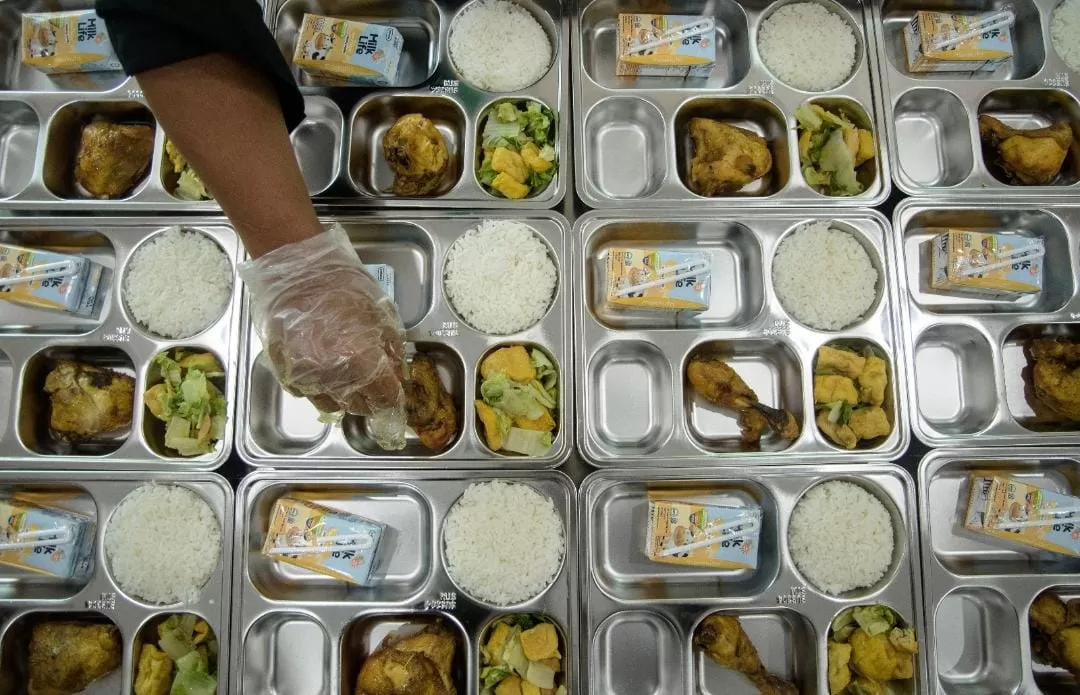In a move that could transform Indonesia’s fight against malnutrition, the Indonesian Chamber of Commerce and Industry (Kadin) and its Chinese counterpart have agreed to join forces in building 1,000 free nutritious meal kitchens across the archipelago. Known as the Indonesia-China MBG kitchen cooperation, this strategic partnership is not only about meals but about future prosperity, bilateral relations, and public health transformation.
The initiative follows Indonesia’s commitment to improving nutrition access for all, especially in rural and vulnerable communities. Through the MBG (Makan Bergizi Gratis or Free Nutritious Meals) program, the government seeks to ensure that citizens — especially children — are no longer held back by undernourishment. With China offering technical assistance, investment support, and collaborative frameworks, the partnership signals a powerful fusion of development goals and diplomatic strategy.
Why the MBG Program Matters Now
Indonesia’s MBG initiative is born out of urgent necessity. According to government health statistics, millions of Indonesians still face food insecurity. Children in rural areas often grow up with poor access to balanced meals, resulting in widespread stunting and other long-term developmental challenges.
The MBG program is an ambitious state-backed solution to these issues, intended to operate at scale — delivering free nutritious meals via community kitchens supported by the private sector. As part of Indonesia’s broader socio-economic plan, the MBG kitchens are expected to provide not just food but also jobs, food supply chain opportunities, and community-based health education.
The program aligns closely with President Joko Widodo’s vision of strengthening Indonesia’s human capital. However, achieving this vision across a sprawling archipelago is no small task. This is where the Indonesia-China MBG kitchen cooperation comes in.
The Role of Kadin and China’s Strategic Support
At the recent Indonesia-China High-Level Dialogue Forum held in Jakarta, the Chinese Chamber of Commerce (Kadin China) pledged to assist Indonesia’s Kadin in building 1,000 MBG kitchens. This is in addition to Kadin Indonesia’s own target of completing 100 MBG kitchens by August 17, 2025 — Indonesia’s independence day.
According to Anindya Bakrie, Deputy Chair of Kadin Indonesia, this collaboration is not just financial. China brings construction expertise, supply chain infrastructure, and potential technology for scaling operations quickly and efficiently. The cooperation agreement reflects shared values between both countries — combining economic partnership with grassroots development.
This partnership is also part of a larger roadmap for economic cooperation between Indonesia and China, building on past initiatives such as the Belt and Road Initiative (BRI) and strategic investments in Indonesian infrastructure.
Building Nutrition, Strengthening Relations
The Indonesia-China MBG kitchen cooperation is more than an aid project. It represents a sophisticated model of diplomatic engagement that addresses a key social issue while also opening the door for future cross-sector partnerships.
From a public health perspective, these kitchens have the potential to serve thousands of meals per day across diverse provinces, with a special focus on schoolchildren, low-income households, and rural villages. Community kitchens will provide not only meals but also employment to local cooks, logistics workers, and administrators. Small-scale farmers can become suppliers, fueling a localized and sustainable food chain.
From a geopolitical standpoint, this cooperation signals a deepening of Indonesia-China relations beyond trade and investment. By aligning developmental interests, both countries are building people-centered diplomacy — a theme that resonates well with ASEAN’s growing emphasis on inclusive regional cooperation.
The fact that China is willing to co-invest in Indonesia’s domestic programs adds another layer of trust and soft power dynamics to the relationship. It also positions Indonesia as a leading model in Southeast Asia for leveraging partnerships to solve human development challenges.
Implementation: What Comes Next?
While the memorandum has been signed and intentions are clear, the real challenge lies in execution. Building 1,000 community kitchens involves:
1. Infrastructure and Logistics
Suitable land, water supply, and energy access are crucial. Most MBG kitchens will be set up near schools, village halls, or government facilities. China’s expertise in modular construction may help speed up deployment.
2. Workforce Training
Indonesia will need to train thousands of kitchen workers. Collaborations with culinary schools, health professionals, and community groups will be essential. Kadin’s network will play a crucial role in recruitment and capacity building.
3. Supply Chain and Local Sourcing
A core element of the MBG model is sourcing ingredients from local farmers and cooperatives. This not only ensures freshness but also boosts rural economies. China may assist in digitizing and streamlining logistics for consistency and efficiency.
4. Monitoring and Evaluation
To ensure long-term impact, data systems will be installed to track meal quality, nutritional value, community satisfaction, and program effectiveness. These insights will help scale the program further, and potentially export the model to other developing nations.
Beyond Kitchens: A Model for Social Innovation
The Indonesia-China MBG kitchen cooperation could become a model for social innovation globally. By combining public policy with private sector implementation and international partnerships, it exemplifies how countries can creatively address urgent challenges.
The initiative resonates strongly with the United Nations Sustainable Development Goals (SDGs), particularly:
- Goal 2: Zero Hunger
- Goal 3: Good Health and Well-being
- Goal 17: Partnerships for the Goals
It also represents a significant milestone in bilateral cooperation, reminding the global community that diplomacy can be rooted in community action — not just big business or defense strategy.
Final Thoughts
The Indonesia-China MBG kitchen cooperation is more than a symbolic handshake between nations. It’s a tangible, on-the-ground investment in Indonesia’s people — one meal, one community, and one partnership at a time.
If executed successfully, it could rewrite how Southeast Asia and its partners tackle public health, nutrition, and grassroots development. With the combined strength of Kadin Indonesia, Kadin China, and the communities they serve, this cooperation holds the promise of a healthier and more united future.
Read More






 Friday, 27-02-26
Friday, 27-02-26







